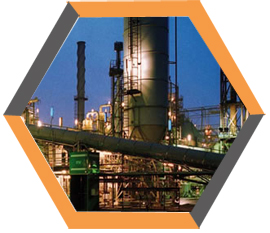Chemical Industry
You Are Here -> Home ->Chemical Industry
Chemical Industry
 chemical industry, complex of processes, operations, and organizations engaged in the manufacture of chemicals and their derivatives.
chemical industry, complex of processes, operations, and organizations engaged in the manufacture of chemicals and their derivatives.
Although the chemical industry may be described simply as the industry that uses chemistry and manufactures chemicals, this definition is not altogether satisfactory because it leaves open the question of what is a chemical. Definitions adopted for statistical economic purposes vary from country to country. Also the Standard International Trade Classification, published by the United Nations, includes explosives and pyrotechnic products as part of its chemicals section. But the classification does not include the man-made fibres, although the preparation of the raw materials for such fibres is as chemical as any branch of manufacture could be.
The complicated characteristics of the chemical industry
The scope of the chemical industry is in part shaped by custom rather than by logic. The petroleum industry is usually thought of as separate from the chemical industry, for in the early days of the petroleum industry in the 19th century crude oil was merely subjected to a simple distillation treatment. Modern petroleum industrial processes, however, bring about chemical changes, and some of the products of a modern refinery complex are chemicals by any definition. The term petrochemical is used to describe these chemical operations, but, because they are often carried out at the same plant as the primary distillation, the distinction between petroleum industry and chemical industry is difficult to maintain.
Metals in a sense are chemicals because they are produced by chemical means, the ores sometimes requiring chemical methods of dressing before refining; the refining process also involves chemical reactions. Such metals as steel, lead, copper, and zinc are produced in reasonably pure form and are later fabricated into useful shapes. Yet the steel industry, for example, is not considered a part of the chemical industry. In modern metallurgy, such metals as titanium, tantalum, and tungsten are produced by processes involving great chemical skill, yet they are still classified as primary metals.
The boundaries of the chemical industry, then, are somewhat confused. Its main raw materials are the fossil fuels (coal, natural gas, and petroleum), air, water, salt, limestone, sulfur or an equivalent, and some specialized raw materials for special products, such as phosphates and the mineral fluorspar. The chemical industry converts these raw materials into primary, secondary, and tertiary products, a distinction based on the remoteness of the product from the consumer, the primary being remotest. The products are most often end products only as regards the chemical industry itself; a chief characteristic of the chemical industry is that its products nearly always require further processing before reaching the ultimate consumer.
Thus, paradoxically, the chemical industry is its own best customer. An average chemical product is passed from factory to factory several times before it emerges from the chemical industry into the market.


